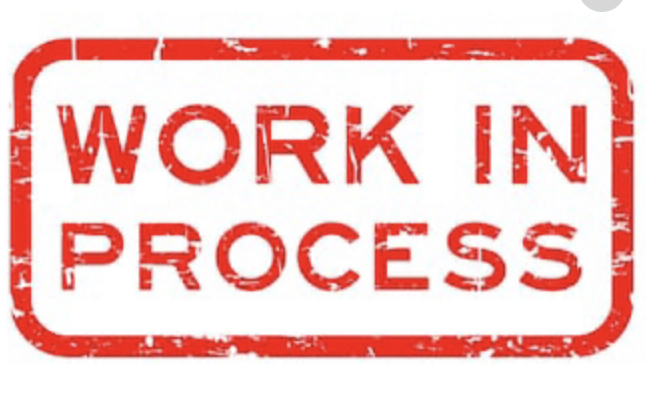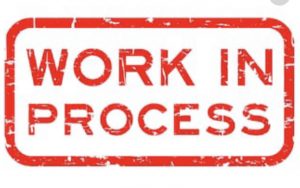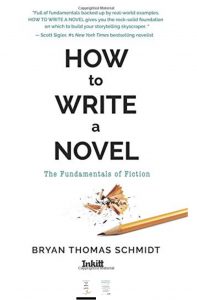If you’re looking for this week’s Write Tip, I posted it Monday due to demand during an online discussion over the weekend. You can find that here. So instead of another WriteTip, today, I am going to talk about rediscovering your own natural talent.
I recently had the chance to go back into my first ever novel and start the process of rewriting and reworking it into something publishable. And the number one thing I didn’t expect to find but did was: good writing. In fact, I’d say I found a level of writing that shocked me. Some of the prose in that early novel was almost as good as anything I am writing today. There’s stuff I have written since writing that I wouldn’t say that about. Stuff that got published. Yet here was this raw, first novel, back when I knew almost nothing about fiction prose and craft, outshining stuff I wrote when I did.
I am not saying I didn’t do a lot of revising. I have and am. Just past halfway on that project at this point. But there’s way more usable prose there than I ever expected. And the characters and story were surprisingly good. So much so that I used the first half almost as is in form and structure, with revisions only to prose and a few character names. And I admit it surprised me.
When you go back to work you wrote 12 years ago, you expect to find a mess. I was expecting I’d read it and be embarrassed. I was expecting I’d throw most of it out and start from scratch. But stylistically, the prose was very similar to my other most recent novel, the second novel I ever tried to write in that subgenre (keeping it secret for reasons). And so I had to wonder if there isn’t some natural talent for those particular types of stories I had not realized I had. There’s something about the purity of prose written in innocence—without all the self-imposed pressure of knowledge gained from experience and the externally imposed pressure of industry standards imposed upon it—that really speaks to you. To me, it said I had a lot more natural ability than I thought, and more than that, reminded me that sometimes innocence has its advantages.
There’s something that happens to us when we discover professional standards and market expectations that puts a new weight on our work in ways that can actually interfere with it. Instead of just writing what naturally comes to us, we constantly reshape it into something that fits all the expectations and standards we have been taught and spent years internalizing. It’s most subconscious, of course, and happens as our brain translates story to the page, but it is very much a reality. And I sometimes wonder if it also can affect purity of our work in ways that negatively impact it.
Anyone who’s creative has at one time or another admired a child’s imagination and the freedom under which it operates. Wished we could go back to that untainted, unspoiled state. It’s something we often try to do as we create, in fact. But there’s a difference between adult child-like imitation and the purity of the real thing. And that is what I’m talking about. This is not a self-aggrandizing damn I’m good post. That’s not what I’m saying. Instead, I am saying that to see for yourself you had capability you didn’t recognize or appreciate long before you ever knew you did is revealing and telling. It’s aLos encouraging and inspiring; a reminder that maybe you truly have found your calling and are doing what you should be.
And for me that was uplifting and encouraging after a year which has really beat me down. Not just COVID-19 and the accompanying depression but professional crises on several levels that have put me through some challenges I thought I’d be long past at this point in my career (and wish I was), including exploitative contracts that had to be fought over, an overzealous editor (an old friend, in fact) that I have to fight off, and other such indignities. It was a pat on the back of sorts, an encouragement, I sorely need to renew my strength and resolve so that I can press forward to the next phase of my career confident that what I’ve dedicated the last 12 years of my life too is not wishful thinking but something I was born to do. And that’s a very good thing, because there’s truly nothing else I want to be doing with my life, so giving it up or changing course at this point would be very heartbreaking.
It’s nice to know I had ability even before I had the knowledge I needed to really take advantage of it, and it’s nice to know that ability could reach heights that for many years I thought I wasn’t capable of. It’s a bit ironic and frustrating that my learning curve held me back a bit from those heights in some ways, getting to where I am, but it’s also nice to know that work I consider the best of my career is at a level that matches the untainted heights I have been capable of in the past.
I don’t doubt that not everyone will be able to make such discoveries in their own work. I don’t doubt that everyone’s experience with such revisiting the past will be unique to them. But I’m thankful this was mine, because I really needed that. For what it’s worth…


 This tip isn’t about fanfic of the free kind fans write and post on various online forums for such. This post is about something related but troublesome. This post is about unauthorized novels and fiction written in existing universes owned by others people are planning to profit from and promote.
This tip isn’t about fanfic of the free kind fans write and post on various online forums for such. This post is about something related but troublesome. This post is about unauthorized novels and fiction written in existing universes owned by others people are planning to profit from and promote.
 So 2020 has been kind of a bust. I put out two novels in my John Simon Thrillers and had a couple short stories out in anthologies (Surviving Tomorrow, Weird World War III) but one of those was a reprint. I also edited Surviving Tomorrow, a charity anthology funding COVID-19 test kits, but beyond that I have written two other novels that will appear in 2021 or 2022. And that’s where I stand.
So 2020 has been kind of a bust. I put out two novels in my John Simon Thrillers and had a couple short stories out in anthologies (Surviving Tomorrow, Weird World War III) but one of those was a reprint. I also edited Surviving Tomorrow, a charity anthology funding COVID-19 test kits, but beyond that I have written two other novels that will appear in 2021 or 2022. And that’s where I stand.
 If you haven’t employed this method before on purpose, chances are you have on instinct. Go back and look at some of your previous works if you’re not sure and see if that’s the case. If not, now you have a tool, but even if it is, being able to understand it allows you to use The Rule Of Threes to greater impact and effect.
If you haven’t employed this method before on purpose, chances are you have on instinct. Go back and look at some of your previous works if you’re not sure and see if that’s the case. If not, now you have a tool, but even if it is, being able to understand it allows you to use The Rule Of Threes to greater impact and effect.